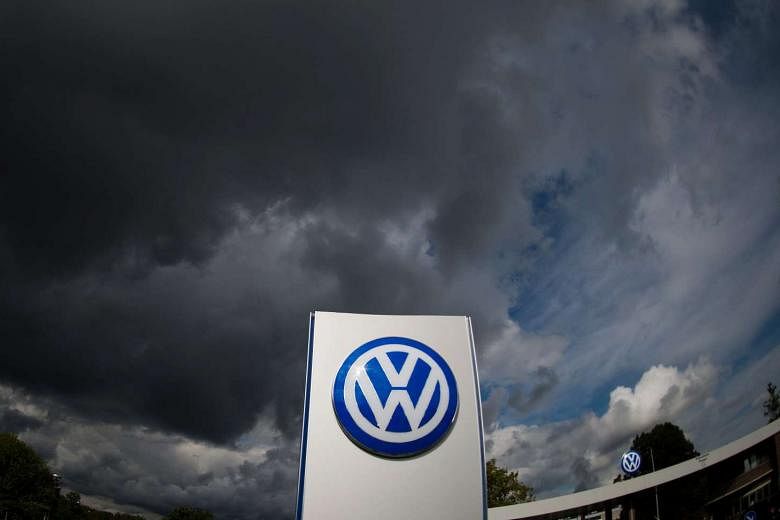WASHINGTON - Volkswagen has agreed to a settlement worth more than US$15.3 billion (S$20.3 billion) with nearly 500,000 customers in the United States and government regulators over polluting diesel vehicles and its rigging of diesel emissions tests.
The US Justice Department filed a proposed consent decree on Tuesday (June 28) that confirms VW will set aside US$10.033 billion to cover buybacks and fixes, US$2 billion to invested in green energy funds and US$2.7 billion to offset diesel emissions.
A source briefed on the matter said VW would announce a separate settlement with at least 44 US states, the District of Columbia and Puerto Rico that will cost at least US$600 million.
That total far exceeds any previous US civil settlement with a carmaker, and it brings VW closer to the €16.2 billion (S$24.2 billion) it has set aside to cover the costs of the scandal. But it will not put an end to VW's legal troubles spanning three continents as the company still faces civil and criminal actions in other jurisdictions.
The total economic impact of the scandal on VW was estimated at €55 billion by Mr Richard Hilgert, an analyst at Morningstar Equity Research. That includes government fines, dealer remuneration, repair costs, vehicle repurchases, litigation costs and damages awarded to plaintiffs from class action lawsuits filed by shareholders and consumers, he said.
The compensation figure jumped over the past few days, the two people said, as the parties changed their estimates on what it would take to get 85 per cent of owners to trade in their vehicles under the settlement.
VW, whose brands include Audi and Porsche, admitted systematically rigging environmental tests from 2009 to hide that its diesel vehicles were emitting far more pollutants than allowed under US and California law.
In order to participate in the settlement plan, if approved by the judge, owners will have to surrender their cars or agree to have them retrofitted to meet emission standards. VW has until the end of 2018 to come up with a viable update, one of the people said.
The rising cost of the US settlement raises the question of whether VW has set aside enough money to put the scandal behind it.
Ms Maryann Keller, an independent auto industry consultant in Connecticut, said the answer depends on how non-US consumers and governments react.
"The bigger problem is if people in other countries and other governments want a similar deal," Ms Keller said. "If they do, I don't think US$18 billion will cut it."
The plan may also not resolve what will be done if owners refuse to give up their cars. That would prolong the environmental effects. "I'll probably just keep driving it," Marcus Frye, a mechanic from California, said of his 2010 VW Jetta diesel model. Mr Frye pulled his Craigslist ad to sell the car after he notice its value had dropped because of the emissions scandal. "If the value of the car is basically junk, why would I give it away to anyone?"
BLOOMBERG, REUTERS

